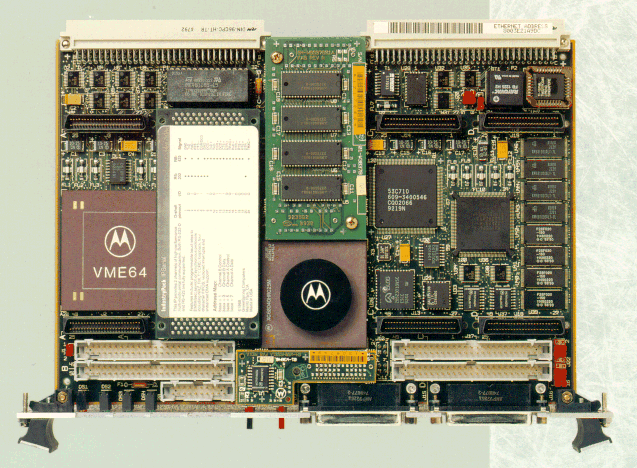
|
OpenBSD/mvme68k runs on a large subset of Motorola's 680x0-based VME motherboard family. The OpenBSD/mvme68k port has been discontinued after the 5.5 release. |
This port was primarily done by Theo de Raadt in 1995 as a contract to Willowglen Singapore. An earlier port to the MVME147 by Chuck Cranor based on Paul Mackerras' old DA30 code (and using hardware donated by Jonathan Levine at Theo's request) provided a solid development platform.
Bizarrely, Dale Rahn, working for Motorola back then, also independently wrote a port to the MVME147. For most kernel parts, both their ports were analyzed but more code was written from scratch by Theo, or based on the hp300 code.
Dale helped significantly during the porting to the 68040 models and wrote most of the code specific to the MVME167 model. Later, Steve Murphree continued work and made the MVME177 work, as well as adding support for more VME devices.
Support for the less commonly encountered MVME165 and MVME141 models was introduced in OpenBSD 4.6.
Currently, all the boards listed in the supported hardware section below boot multi-user, and support enough of the on-board devices to be generally usable.
As none of the mvme68k boards have graphics devices, and none of the Motorola VME frame buffers are currently supported, there are no X Window System servers available. However, a complete set of X clients and utilities is available, allowing OpenBSD/mvme68k machines to behave as X11 font servers, or run X clients on remote display.
Faithful clones of these boards, or other Motorola models may work as well (MVME166, for example).
The last supported OpenBSD/mvme68k release was OpenBSD 5.5. Here are the OpenBSD/mvme68k 5.5 installation instructions.
As VME hardware is quite uncommon in the average retail place, this section is here to satisfy the well-founded curiosity about the mvme68k hardware.
This picture is a MVME162 processor board, with the on-board ethernet and SCSI
controller options, one IndustryPack module, and a memory extension.
